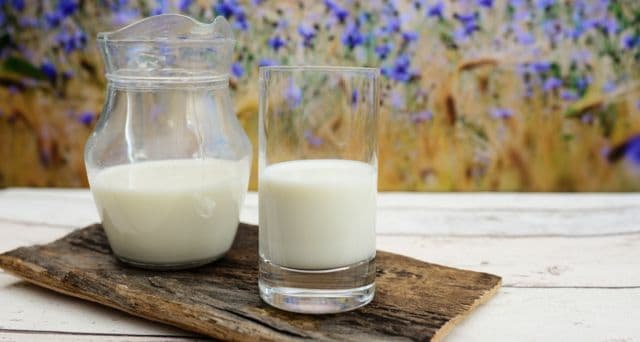Cockroach milk may not sound appealing, but it does exist.Surprisingly, it is even classified as a superfood.Cockroach milk is not actually milk. It is a yellowish fluid that hardens into crystals inside the stomachs of cockroach offspring.ALSO READ |
World’s most expensive cow, sold for Rs 40 crore, is of Indian origin: What’s so special?Recently, it has gained attention as a potential superfood, with claims that it is highly nutritious and beneficial for health.AdvertisementBut what exactly is a superfood? What is cockroach milk, and how does it benefit the body? Is it really more nutritious than cow’s milk? And most importantly, is it safe for consumption?We will answer these questions for you:What is a superfood?Superfoods are not an officially recognised nutritional category, meaning there are no fixed benchmarks a food must meet to earn the label.However, the term is generally used for natural foods that are exceptionally rich in nutrients while being relatively low in calories.In simple terms, superfoods have a high nutritional density, offering a large amount of vitamins, minerals, and antioxidants with minimal calories.Adding them to your diet can be great for your health, but only as part of a balanced and nutritious eating plan, according to Medical News Today.Now, let’s get into the topic you are really here for.ALSO READ |
Why has Pakistan shut down its first breast milk bank?What is cockroach milk?It is a protein-rich, crystallised substance produced by a specific cockroach species called Diploptera punctata.What makes this species unusual is that it gives birth to live offspring.Cockroach milk provides all nine essential amino acids. Pixabay/Representational ImageTo nourish its offspring, the cockroach produces a milk-like fluid that forms protein crystals inside their bodies, according to Healthline.Scientists have recently identified this substance as highly nutritious, classifying it as a complete food since it contains proteins, carbohydrates, and fats in a balanced ratio.Notably, cockroach milk provides all nine essential amino acids – nutrients the body cannot produce on its own and must obtain through food.AdvertisementProteins play a key role in repairing and maintaining cells. Once consumed, they break down into amino acids, which support functions like digestion, cell regeneration, and overall growth.ALSO READ |
Where do cockroaches come from? How did they take over the world?Cockroach milk vs cow milk: Which is more beneficial?Lab tests conducted back in 1997 revealed that cockroach milk is packed with nutrients, offering a rich mix of carbohydrates, fats, proteins, vitamins, minerals, and all nine essential amino acids, according to Healthline. Notably, it’s also free from lactose.The growing interest in cockroach milk and its potential health benefits took off in 2016 when researchers analysed the nutritional composition of the milk-like fluid produced by female Pacific beetle cockroaches.Their findings suggested that this substance, typically consumed by cockroach offspring, might be one of the most nutrient-dense substances ever discovered.A study published in the Journal of the International Union of Crystallography in 2016 found that cockroach milk contained three times as many calories as the same amount of buffalo milk, which was previously considered the most calorie-rich milk from a mammal.AdvertisementCockroach milk is free from lactose. Pixabay/Representational ImageThe researchers noted that a single crystal of cockroach milk “is estimated to contain more than three times the energy of an equivalent mass of dairy milk.”Scientists believe this secretion from cockroaches is rich in proteins, fats, and sugars, making it one of the most nutrient-packed natural substances known so far.Since cockroach milk is not derived from dairy, it is naturally lactose-free, making it a potential alternative for those who are lactose intolerant or allergic to cow’s milk.Is it safe to consume?As unappealing as it may seem, cockroach milk has caught the interest of both scientists and some consumers.With an increasing demand for dairy-free alternatives to cow’s milk and ice cream, it has sparked curiosity.However, researchers behind the Journal of the International Union of Crystallography study noted that there is no concrete evidence proving cockroach milk is safe for human consumption.AdvertisementThey also pointed out a major limitation. Cockroaches produce only a tiny amount of this fluid, making large-scale production extremely difficult.Currently, extracting cockroach milk is a labour-intensive process. It requires killing a lactating female cockroach along with her embryos and then harvesting the protein crystals from its midgut, Healthline reported.One of the co-authors of the study on cockroach milk said that mass production is not practical at this stage. According to their estimates, over 1,000 cockroaches would need to be sacrificed to produce just 100 grams (approximately 0.104 litres) of milk.Another factor to consider is its high-calorie content.A single cup (250 ml) of cockroach milk is estimated to contain around 700 calories, more than three times the calorie count of the same amount of regular cow’s milk, according to Healthline.AdvertisementCockroaches produce only a tiny amount of this fluid. Pixabay/Representational ImageALSO READ |
Donkey milk sells for Rs 5000 a litre: Why is it so expensive?Can humans consume cockroach milk?At present, there is no scientific research confirming that cockroach milk is safe for human consumption.As a precaution, vulnerable groups such as children and pregnant women should steer clear of it.Moreover, cockroach milk is not widely available, and given the challenges involved in its production, it is unlikely to become affordable anytime soon.On top of that, the mere thought of drinking cockroach milk is enough to put most people off.For these reasons, cockroach milk is not yet considered a possible option for human consumption. Like other so-called superfoods, it should be regarded as a supplement rather than a staple.More from Health
Extreme dieting or slow suicide? Why eating disorders kill more than they cure
What are ultra-processed foods? Are they bad for you?
World Sleep Day: Orthosomnia is making you lose sleep: What is this unhealthy obsession?
5 million dollars down the drain: Is employee burnout draining company profits?TagsHealthEnd of Article
Follow this link:
Bugs with benefits? Is cockroach milk better than cow’s milk?

